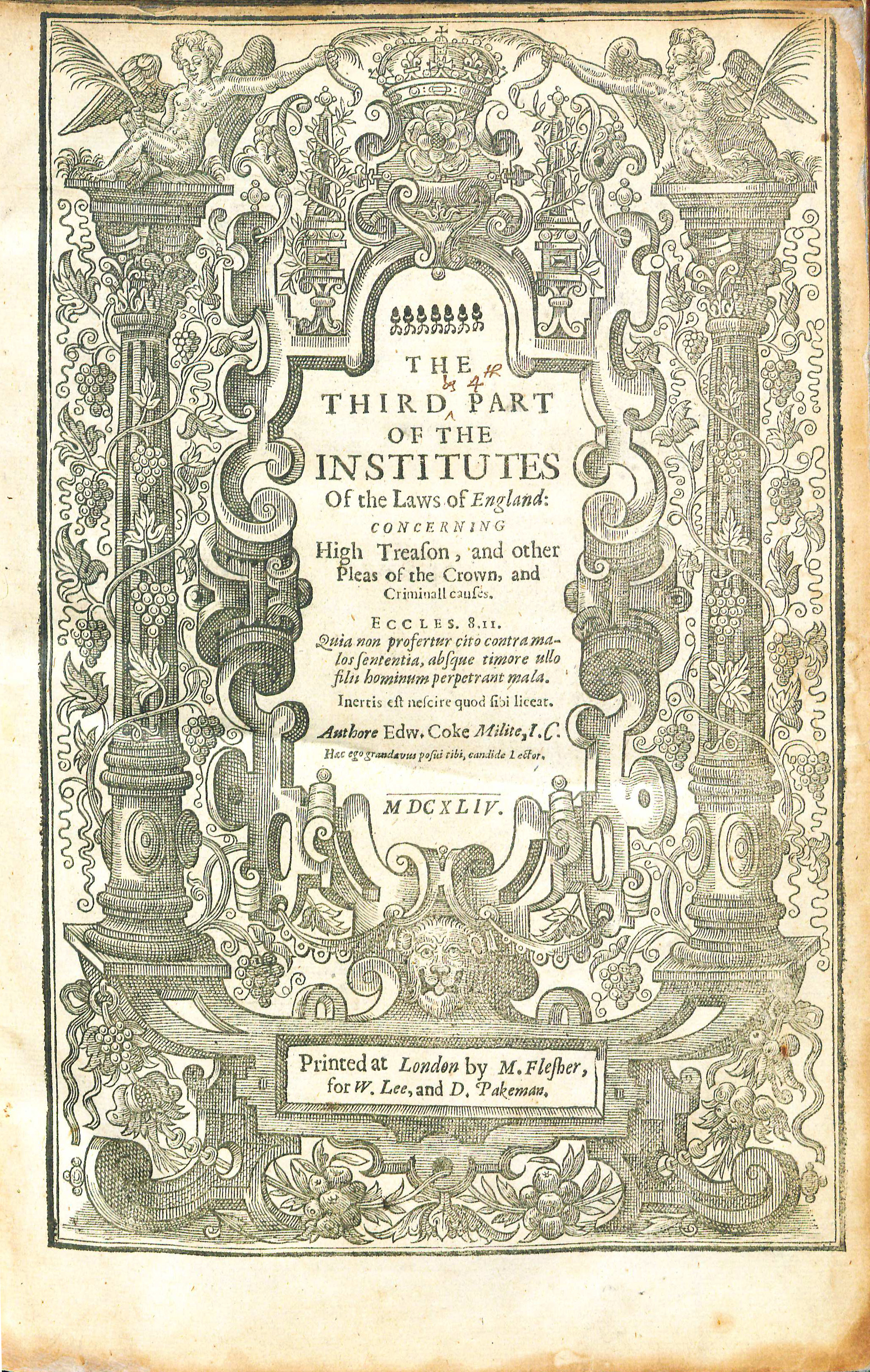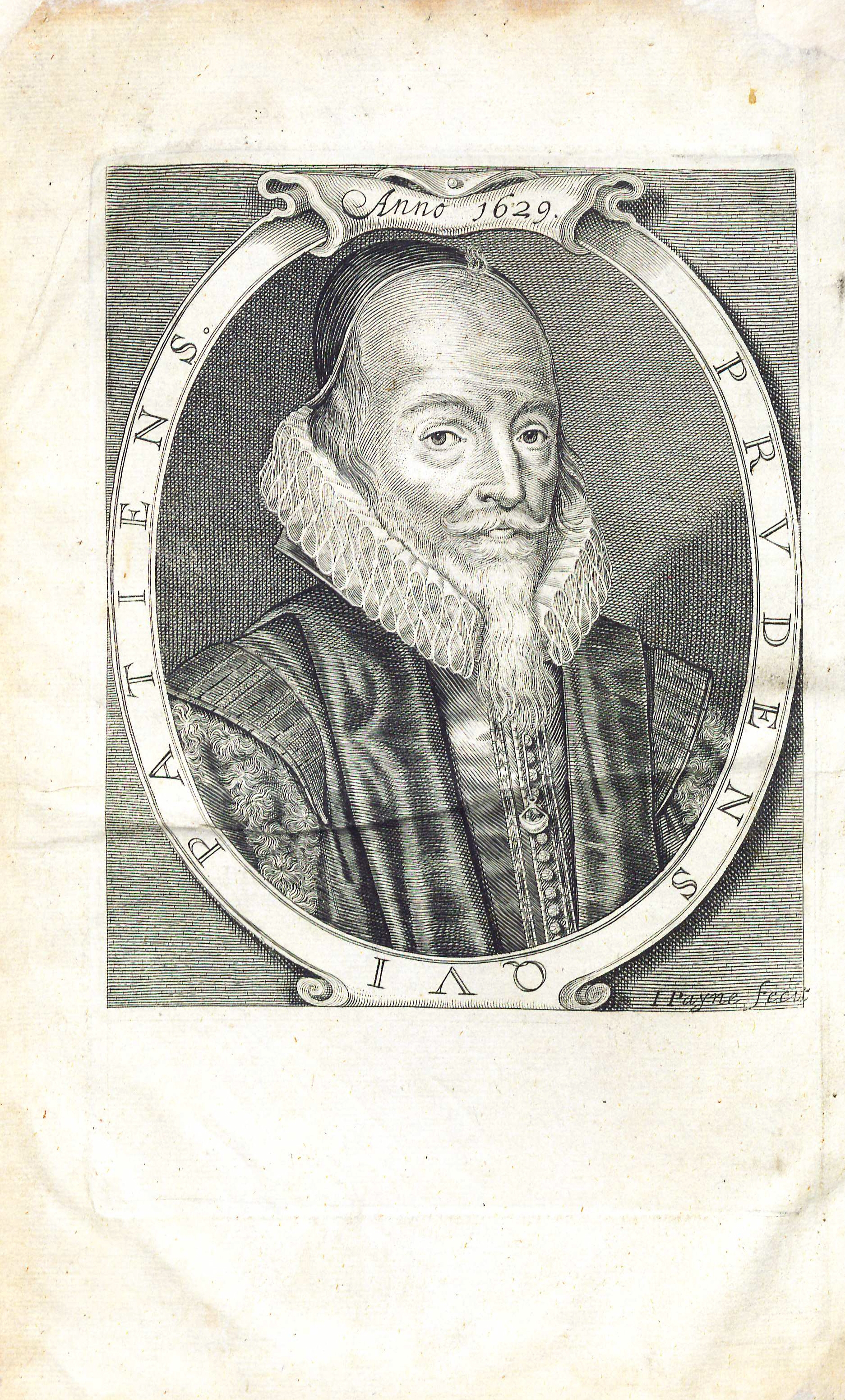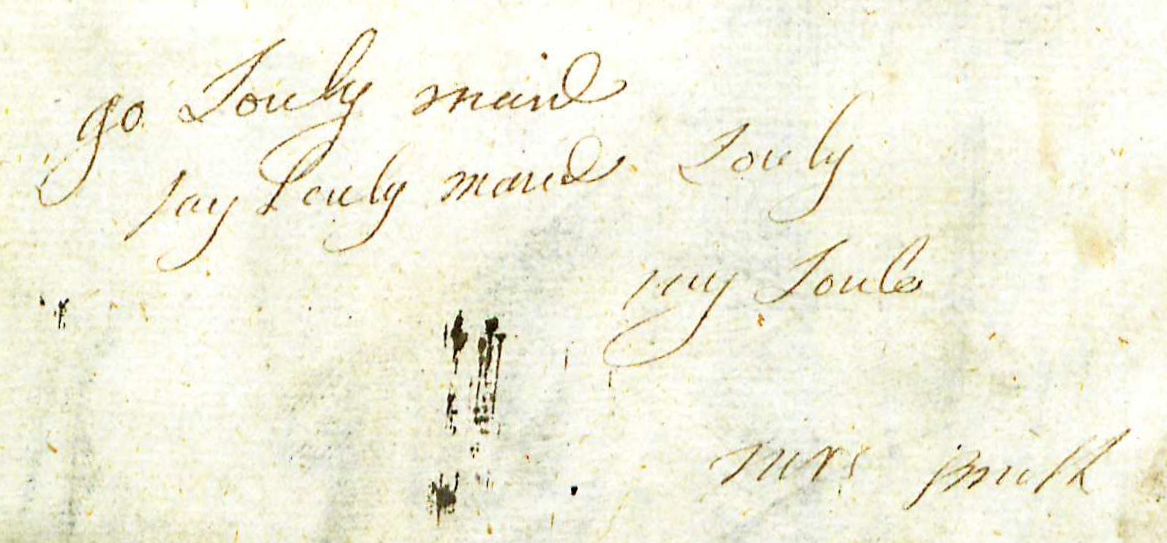The Third Part of the Institutes of the Laws of England: Concerning High Treason, and Other Pleas of the Crown, and Criminall Causes
by Sir Edward Coke
| The Third Part of the Institutes of the Laws of England | |
|
Title page from The Third Part of the Institutes of the Laws of England, George Wythe Collection, Wolf Law Library, College of William & Mary. | |
| Author | Sir Edward Coke |
| Published | London: Printed by M. Flesher, for W. Lee, and D. Pakeman |
| Date | 1644 |
| Edition | First |
| Language | English |
| Pages | [7], 243, [18] |
| Desc. | Folio (29 cm.) |
| Location | Shelf G-1 |
Coke began his studies in 1567 at Trinity College, Cambridge during the years of the Vestiarian controversy—puritan protests against the Church of England. In 1572 he moved on to study at the Inner Temple, where he was admitted to the bar on April 20, 1578. Coke quickly rose to prominence through his successful execution of several noteworthy cases, such as Shelley's case. Coke's analytical efforts helped to refine the legal doctrines of English law, and his reputation won him a seat in Parliament. He would later become the Speaker of the House of Commons and eventually attorney general.[2] In 1606, after being created serjeant-at-law, Coke was appointed chief justice of the Court of King's Bench in 1613; he also became a member of the Privy Council.[3]
After several political and judicial skirmishes with James I and Francis Bacon, Coke was suspended from the privy council and removed from the bench in 1616.[4] Although he never returned to the bench, Coke did return to Parliament and was elected to that body four times from 1620 to 1629. During this time he took a lead in creating and composing the Petition of Right. "This document cited the Magna Carta and reminded Charles I that the law gave Englishmen their rights, not the king ... Coke's petition focused on ... due process, protection from unjust seizure of property or imprisonment, the right to trial by jury of fellow Englishmen, and protection from unjust punishments or excessive fines."[5] After this triumph, Coke spent his remaining years at his home, Stoke Poges, working on The Institutes of the Laws of England, another endeavor for which he is rightly famous.[6]
The Third Part of the Institutes of the Laws of England focuses on the criminal law of England. Coke transferred his experience as attorney general and judge into the third part of the Institutes by focusing on treason, misprision of treason, and heresy more than on homicide, rape, robbery, and similar crimes. Coke had personally tried several famous treason and libel cases as attorney general, such as the Gunpowder Plot of 1605, and his focus is largely based on his experiences.[7] Coke’s Institutes were enormously influential in the United States, especially with regard to the construction of the Third and Fourth Amendments to the Constitution. The Institutes have been cited in over 70 cases decided by the Supreme Court of the Unites States.[8]
Evidence for Inclusion in Wythe's Library
Listed with the other parts of Coke's Institutes in the Jefferson Inventory of Wythe's Library as "Coke's Institutes. 3.v. fol." This was one of the sets kept by Thomas Jefferson. He may have sold to the Library of Congress in 1815. Three of the George Wythe Collection sources (Goodwin's pamphlet[9], the Brown Bibliography[10] and George Wythe's Library[11] on LibraryThing) include the fourth (1670) edition of The Third Part of the Institutes of the Laws of England, based on Millicent Sowerby's entry in Catalogue of the Library of Thomas Jefferson.[12] Jefferson's copy still exists with the third and fourth parts bound together, and it contains manuscript notes not in his hand. Neither have those notes been linked to Wythe, nor are there any other indications that the volume once belonged to Wythe. Dean's Memo[13] lists the first (1644) edition of The Third Part based on notes in Jefferson's commonplace book.[14] The Wolf Law Library followed Dean's recommendation and purchased a copy of the first edition.
Description of the Wolf Law Library's copy
Rebound in period-style full blind calf. Includes previous owner's inscriptions on front flyleaf "my hoyle" (multiple times) and "go lovely maid, lay lovely maid Lovely, my lovely Mrs. Smith." Purchased from The Lawbook Exchange, Ltd.
Images of the library's copy of this book are available on Flickr. View the record for this book in William & Mary's online catalog.
Full text
See also
- A Book of Entries
- The First Part of the Institutes of the Lawes of England, or, A Commentary upon Littleton
- The Fourth Part of the Institutes of the Laws of England: Concerning the Jurisdiction of the Courts
- George Wythe Room
- Jefferson Inventory
- The Reports of Sir Edward Coke
- The Second Part of the Institutes of the Laws of England: Containing the Exposition of Many Ancient and Other Statutes
- Wythe's Library
References
- ↑ Encyclopaedia Britannica Online, s.v. "Sir Edward Coke," accessed October 3, 2013.
- ↑ Allen D. Boyer, "Coke, Sir Edward (1552–1634) in Oxford Dictionary of National Biography, accessed September 18, 2013.
- ↑ Boyer, "Coke, Sir Edward."
- ↑ Encyclopædia Britannica Online, s.v. "Sir Edward Coke."
- ↑ Bill of Rights Institute website, s.v. "Petition of Right (1628)," accessed October 3, 2013.
- ↑ Boyer, "Coke, Sir Edward."
- ↑ Encyclopaedia Britannica Online, s.v. "Sir Edward Coke."
- ↑ LexisNexis search performed May 1, 2008.
- ↑ Mary R. M. Goodwin, The George Wythe House: Its Furniture and Furnishings (Williamsburg, Virginia: Colonial Williamsburg Foundation Library, 1958), XLVI.
- ↑ Bennie Brown, "The Library of George Wythe of Williamsburg and Richmond," (unpublished manuscript, May, 2012) Microsoft Word file. Earlier edition available at: https://digitalarchive.wm.edu/handle/10288/13433.
- ↑ LibraryThing, s.v. "Member: George Wythe," accessed on March 12, 2014.
- ↑ E. Millicent Sowerby, Catalogue of the Library of Thomas Jefferson, (Washington, D.C.: The Library of Congress, 1952-1959), 2:219 [no.1784].
- ↑ Memorandum from Barbara C. Dean, Colonial Williamsburg Found., to Mrs. Stiverson, Colonial Williamsburg Found. (June 16, 1975), 10 (on file at Wolf Law Library, College of William & Mary).
- ↑ Gilbert Chinard, ed., The Commonplace Book of Thomas Jefferson: A Repertory of His Ideas on Government (Baltimore, MD: The Johns Hopkins Press, 1926), 14.


